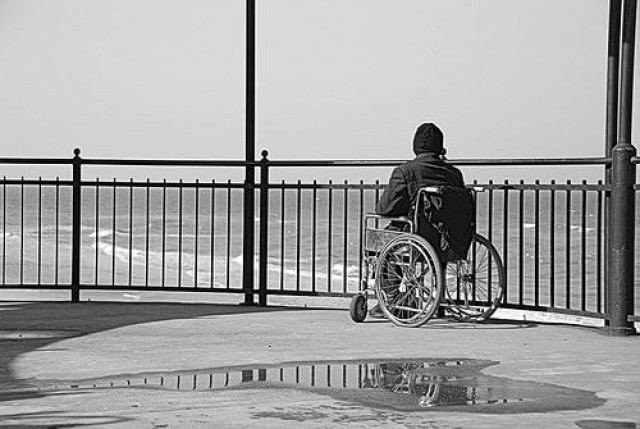Consultation meeting: ‘Enact national policy on people with disabilities’
Speakers decry poor state of facilities, urge government to fulfil its commitments under UN convention

Speakers decry poor state of facilities, urge government to fulfil its commitments under UN convention. STOCK IMAGE
Speakers at a consultation on Saturday lamented that despite introduction of several laws and policies by various governments there had been no improvement in facilities available for people with disabilities.
Movement for Independence of Disabled Persons (MID) president Atif Raza said the country had yet to make progress on the conditions it was required to fulfill under the Untied Nations Convention for the Rights of Disabled Persons. “The federal government should look into the matter or it may risk UN penalties,” he said.
Other participants raised the issue of a poor state of education facilities for people with disabilities. They said there were some education institutes catering to the needs of people with disabilities. But, they added that funds allocated to these institutes were not enough to keep them running. Pakistan Association of the Blind Lahore branch general secretary Muhammad Muzaffar said that owing to lack of funds bus service at his school had to frequently accommodate more students than its capacity in a single trip. He added that the school building lacked enough rooms so that students of different grades were made to sit together.
In particular, the participants expressed concerns about the lack of assistance for people with disabilities to sit board examinations. They complained that it was too difficult for them to find people to write answers for them. MID general secretary Sadia Atif said the government should look into allowing students with visual disability to submit audio recording of answers or to use brail technology to solve their exams.
Voice for the Rehabilitation of Special Persons general secretary Imtiaz Fatima complained about an arduous process of obtaining an identity card for people with disabilities. She said they were required to obtain a certificate about their disability from a government approved medical practitioner. She said there were only 600 such medical practitioners in the country.
Irshad Kazim of Gilgit Baltistan-based Vision Welfare Foundation said an office of the National Database and Registration Authority (NADRA) in his area had refused to issue him a computerised national identity card (CNIC) with a disability monogram. “They said they had directions from their headoffice in Islamabad not to issue any CNICs with the disability monogram,” he said.
The participant suggested that during the next census the government introduce a separate category of people with disabilities and document their number across the country.
They also complained about lack of facilities for people with disabilities at polling stations. They said there had been no attempt at making polling stations accessible to them and urged the government to introduce measures to enable them to cast their votes without relying on others. They also urged political parties to form separate wings for people with disabilities.
Lack of implementation of job quotas for people with disabilities was also discussed at the session. The speakers condemned the police for manhandling people with disabilities at recent protests for implementation of job quotas.
Lawyer Asad Jamal discussed the state of criminal and penal codes with reference to people with disabilities. He said there were no clear provisions on the matter of execution of mentally challenged people. He also highlighted the possibility of abuse of blasphemy laws. He said there was no mechanism to prevent implication of mentally challenged people in blasphemy cases.
Irfan Mufti of the South Asia Partnership (SAP) stressed the need for introduction of a uniform policy on people with disabilities. He said various provinces were following different policies at the moment. Besides, he said most matters pertaining to people with disabilities were being dealt with through executive orders rather than legislations.
Published in The Express Tribune, August 2nd, 2015.



















COMMENTS
Comments are moderated and generally will be posted if they are on-topic and not abusive.
For more information, please see our Comments FAQ